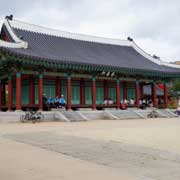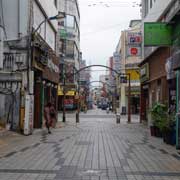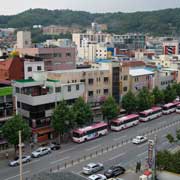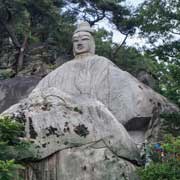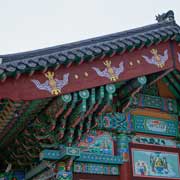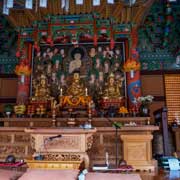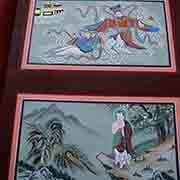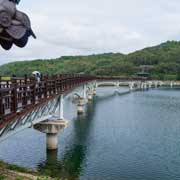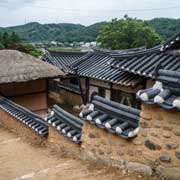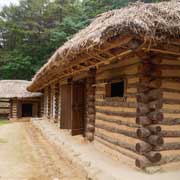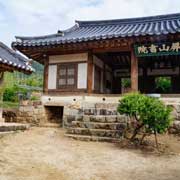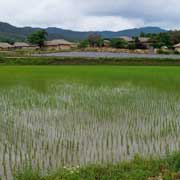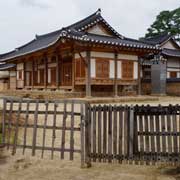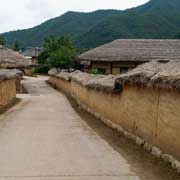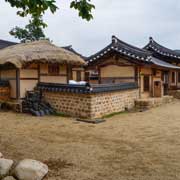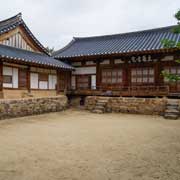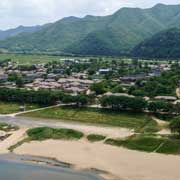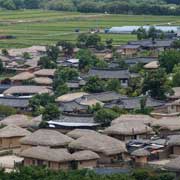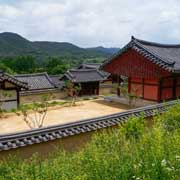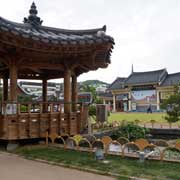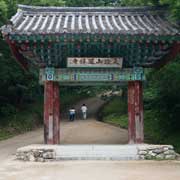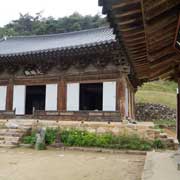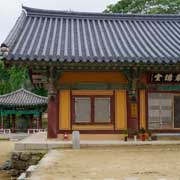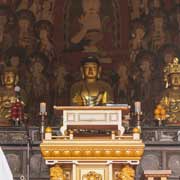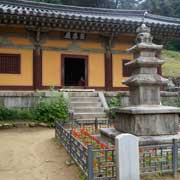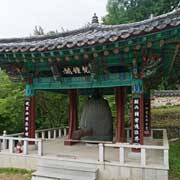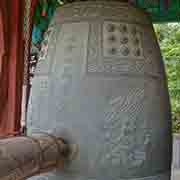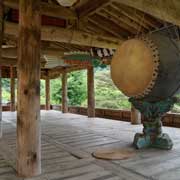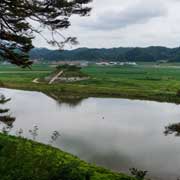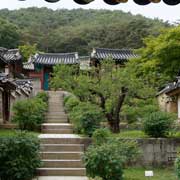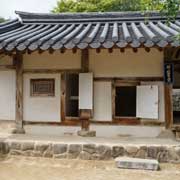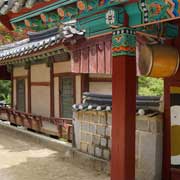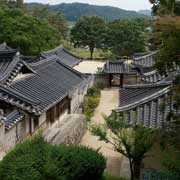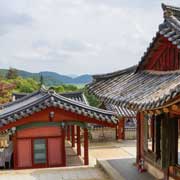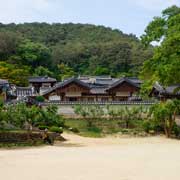Photos of Around Andong, North Gyeongsang Province, Korea
Around Andong, North Gyeongsang Province
Andong is the capital of Gyeongsangbuk-do (North Gyeongsang Province), a city on the Nakdong River, with a population of around 168,000. To the northeast of the town is Andong Dam, one of a series of hydroelectric dams, creating Andong Lake; the lake is stocked with bass and offers fishing and water sports. Just downstream from the dam is Andong Folk Village, where traditional houses from the Joseon Dynasty that were moved from the area now covered by the artificial lake have been rebuilt. Nearby is Andong’s Woryeonggyo Bridge, 387 metres in length and 3.6 metres in width, the longest pedestrian overpass made of wood in Korea; it was opened in 2003.
you may then send it as a postcard if you wish.
About 25 kilometres west of Andong is Hahoe Folk Village, a traditional village established in the 16th century during the Joseon Dynasty; it has remained a one-clan community since that time. It is unique because it has preserved many of its original structures, aristocratic tile-roofed residences, thatched-roof servants’ homes, the Byeongsan Seowon Confucian Shrine and other buildings.
About 16 kilometres to the north of Andong is Bongjeongsa, Andong’s largest Korean Buddhist temple on the slopes of Mount Cheondeung. Here is the Geukrakjeon (or Geuknakjeon, Nirvana Hall), the oldest wooden building in Korea, built in the mid-Goryeo period, around the 12th and 13th century; it also has a stone pagoda from the Goryeo dynasty era.
About 28 kilometres to the northeast of Andong is Dosan Seowon, a Confucian Academy, established in 1574 in honour of Yi Hwang, Korea’s foremost Confucian scholar. It was the most prestigious school for those aspiring for high office during the mid-Joseon dynasty. It was home to the Toegye School of Thought for over 400 years. The complex consists of “Dosan Seodang”, the lecture hall which Toegye built and where he taught his students and where a tablet with the text “Dosan Seowon” still can be seen; it was a gift from King Seonjo, who royally chartered it in 1575. There is also a library, a dormitory building for the students and “Jeongyodang”, a square lotus pond.



